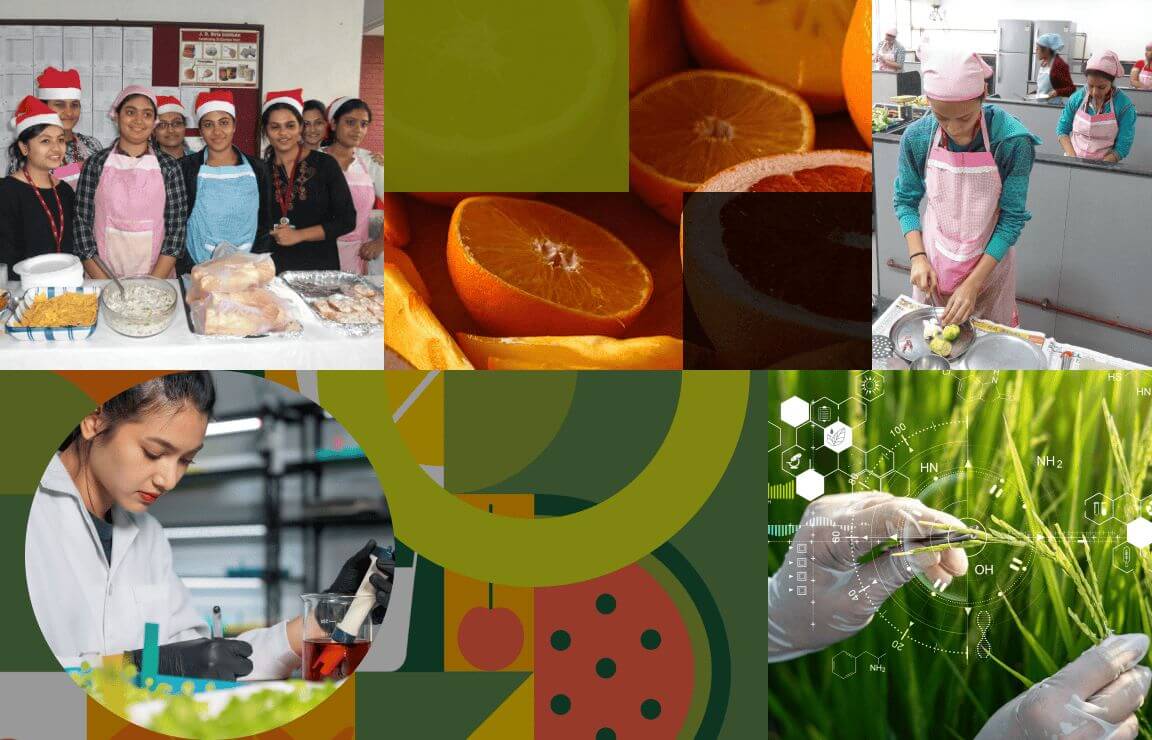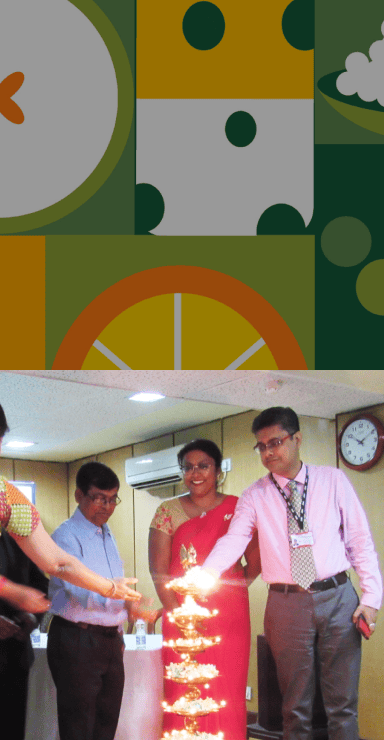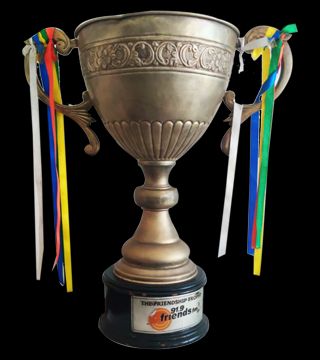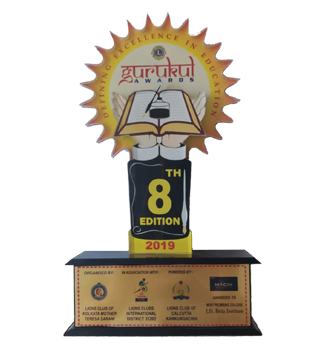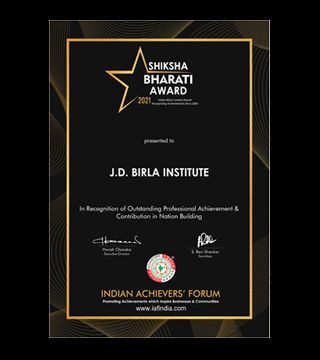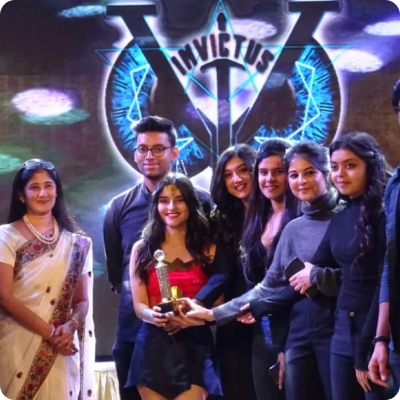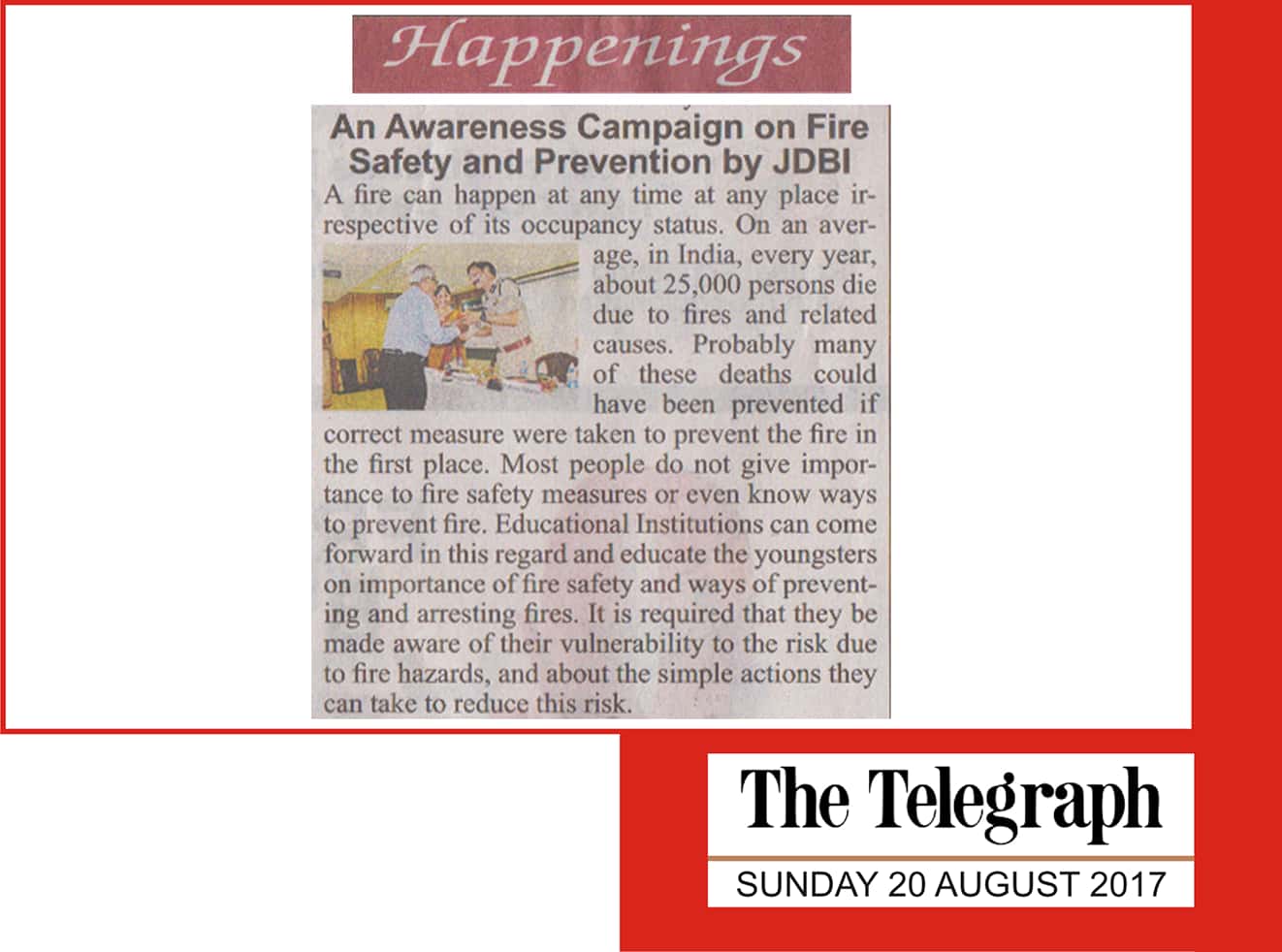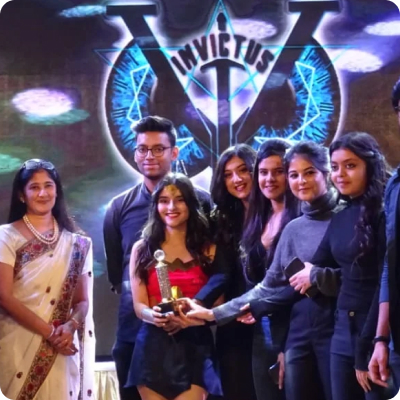Department of Food Science & Nutrition Management
B. Sc
(Hons)
Course Highlights
The course shall include
Human Health:
Nutrition science supported with human physiology & biochemistry and Public health nutrition with focus on nutrition education programs.
Food Science:
Food functions, nutrient metabolism, food behavior, food quality & auditing systems and food product development.
Dietetics:
Food requirements through the life span; functional foods & supplements; dietary guidelines for ailments; creative diet and menu planning; lifestyle & eating modifications with nutritional counseling.
Food Processing:
Methods & regulations in food processing and research based food product development.
Culinary Skills:
Bakery and confectionery; institutional and innovative food presentation & sensory skills.
Food Service Management:
Hospital & industrial catering techniques.
- Food Testing & Analysis.
- The course shall be supplemented by practical and on-job training through Diet Camps, Field Visits and Health & Wellness Workshops.
- Student will be evaluated on each subject / paper (theory/practical) under both:
- a) Continuous Internal Evaluation (CIE): 40% weightage CIE includes written class tests, assignments, seminars, tutorials and/or laboratory assignments.
- b) End-semester Examination (ESE): 60% weightage Six ESE will be held, one at the end of each semester.
Course Duration:
15-17 weeks per semester with 20-26 classes of 1 hr duration per week.
Course Timings:
9:30 am to 4:00 pm, six days a week (1st and 3rd Saturdays are off days).
Class Size:
40-45 students
Job opportunities
Clinical Dietician
Sports Nutritionist
Weight Management Professional
Dietary Manager
Nutrition Educator
Research and Development Scientist
Professional Chefs
Public Health Nutritionist
Public Health Worker
Food Industry Professional
Food Quality Officer &/ Food Auditor
International Aid Worker
Food Writer / Blogger
M. Sc
Course Highlights
The course shall include
- The course includes subjects like Food Science & Technology, Clinical Nutrition, Dietetics, Food Quality Analysis.
- Food Service Management, Public Health & Nutrition, Research Methodology and Thesis Writing.
- Student will be evaluated on each subject / paper (theory/practical) under both:
- a) Continuous Internal Evaluation (CIE): 40% weightage CIE includes written class tests, assignments, seminars, tutorials and/or laboratory assignments.
- b) End-semester Examination (ESE): 60% weightage Four ESE will be held, one at the end of each semester.
Course Duration:
15-17 weeks per semester with 20-26 classes of 1 hr duration per week.
Course Timings:
9:30 am to 4:00 pm, six days a week (1st and 3rd Saturdays are off days).
Class Size:
10-12 students
Job opportunities
Entrepreneur
Food Quality Analyst
Dietitians & Diet Counselor
Project Officer in NGOs
Academician
Curriculums
Awards and Achievements
Celebrating Success: Our Proud Achievements-Showcasing the honors that reflect our commitment to excellence.
Latest News
JDBI Campus Chronicles: Latest News and Highlights from J.D. Birla Institute
